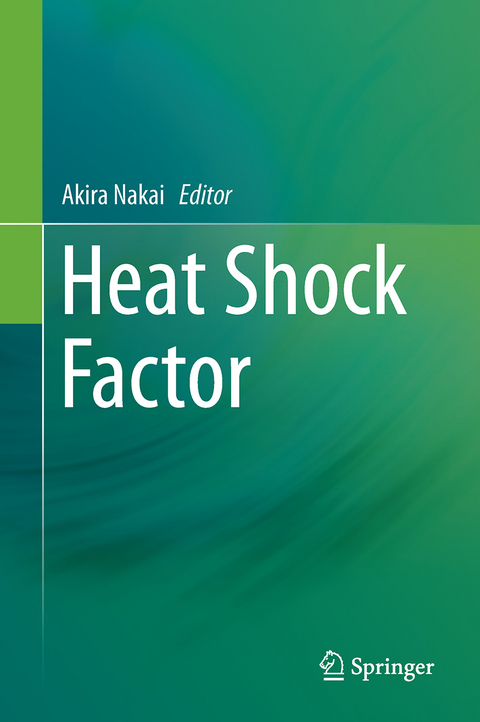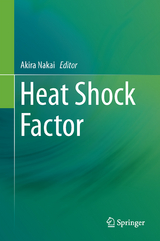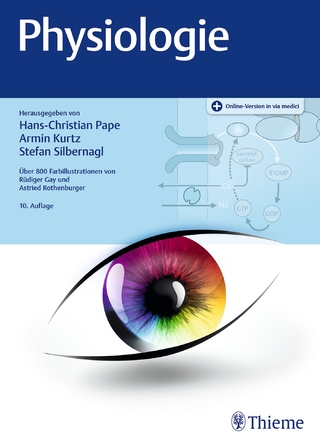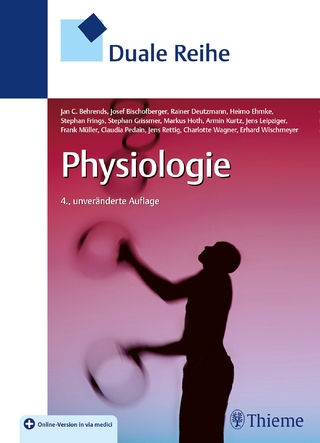Heat Shock Factor
Seiten
2016
|
1st ed. 2016
Springer Verlag, Japan
978-4-431-55850-7 (ISBN)
Springer Verlag, Japan
978-4-431-55850-7 (ISBN)
This book presents a large amount of information related to the heat shock response and heat shock factor (HSF), describes core observations about molecular mechanisms and pathophysiological roles, and provides fundamental concepts on the basis of information from diverse aspects. This adaptive response to high temperature or protein misfolding is a fundamental mechanism to maintain the capacity of protein homeostasis, or proteostasis, and is evolutionally conserved among all living organisms, including bacteria and humans, on the earth. Furthermore, physiological and pathological roles of HSF have been extensively studied in fruit fly, worm, and mouse models. It has been revealed that HSF plays roles in development of the brain, reproductive and sensory organs, and in ageing, inflammation, and circadian rhythm. Analysis of the mechanisms have uncovered that HSF exerts a wide range of effects on gene expression and epigenetic status on the whole genome. Moreover, loss or gain of HSF function is also closely related to protein-misfolding diseases including neurodegenerative diseases, psychiatric diseases, heart diseases, and cancers. Therefore, HSF is now thought to be a promising therapeutic target for treatment of these refractory diseases.
For undergraduate students, this is a highly understandable source of information on heart shock response and HSF, covering the basis of HSF biology, the physiological role of HSF, and disease associated with HSF function. This book not only serves as a guide to the heat shock response and HSF for students and young researchers in other fields, but also is a cornerstone for future work in the field related to the heat shock response and HSF.
For undergraduate students, this is a highly understandable source of information on heart shock response and HSF, covering the basis of HSF biology, the physiological role of HSF, and disease associated with HSF function. This book not only serves as a guide to the heat shock response and HSF for students and young researchers in other fields, but also is a cornerstone for future work in the field related to the heat shock response and HSF.
1 Proteostasis and adaptation to high temperature stress.- 2 Structure and function of the HSF family members.- 3 Regulation of HSF activation and repression.- 4 Transcriptional regulation by HSF.- 5 HSF1 regulation in aging and its role in longevity.- 6 HSF modulates neural development under normal and stress conditions.- 7 HSF maintains sensory organs.- 8 HSF is required for gametogenesis.- 9 HSF Regulates Immune and Inflammatory Response.- 10 Heat shock factors modulate circadian rhythms.- 11 HSF inhibits the progression of age-related neurodegenerative diseases.- 12 HSF and heart diseases.- 13 HSF supports cancer.- 14 HSF1 activation by small chemical compounds for the treatment of neurodegenerative diseases
| Erscheinungsdatum | 08.10.2016 |
|---|---|
| Zusatzinfo | 14 Illustrations, color; 59 Illustrations, black and white; VIII, 301 p. 73 illus., 14 illus. in color. |
| Verlagsort | Tokyo |
| Sprache | englisch |
| Maße | 155 x 235 mm |
| Themenwelt | Studium ► 1. Studienabschnitt (Vorklinik) ► Physiologie |
| Naturwissenschaften ► Biologie ► Biochemie | |
| Naturwissenschaften ► Biologie ► Mikrobiologie / Immunologie | |
| Naturwissenschaften ► Biologie ► Zellbiologie | |
| Naturwissenschaften ► Biologie ► Zoologie | |
| ISBN-10 | 4-431-55850-0 / 4431558500 |
| ISBN-13 | 978-4-431-55850-7 / 9784431558507 |
| Zustand | Neuware |
| Haben Sie eine Frage zum Produkt? |
Mehr entdecken
aus dem Bereich
aus dem Bereich




